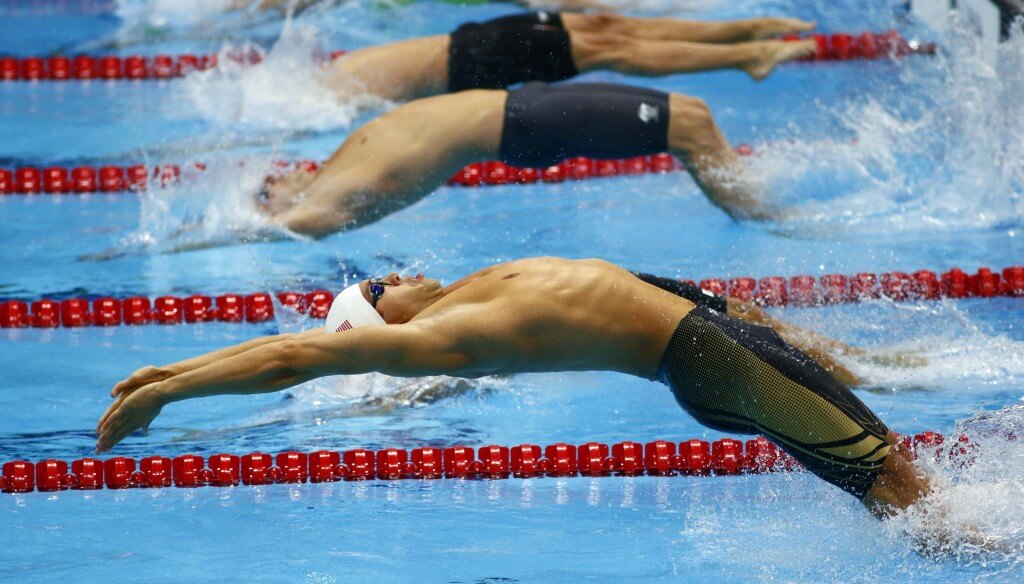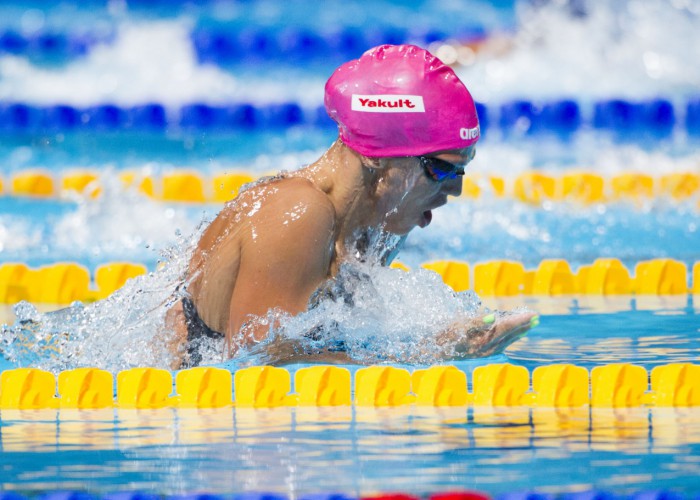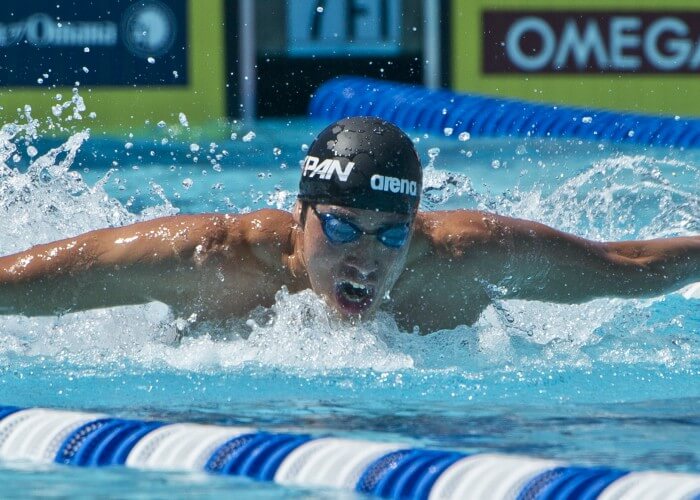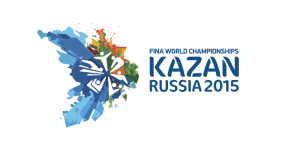World Championships Medal Predictions: Team USA Should Sweep Medley Relays

Coverage of the 2015 FINA World Championships is sponsored by Wylas Timing. Visit our coverage page for more.
Pre-coverage of the World Championships is sponsored by Wylas Timing. Each week leading up to the start of the swimming competition at the FINA world championships, Swimming World will offer medal predictions for the 42 events set to be contested in Kazan, Russia.
Commentary by Jeff Commings
The men’s 400 medley relay didn’t turn out the way the Americans planned at the 2013 world championships. The early takeoff by Kevin Cordes on the breaststroke leg nullified the dominating performance by Team USA in the final men’s event, giving them a major blow to what had been an otherwise so-so meet.
That won’t happen in Kazan next month, and not only because Cordes will likely not swim the breaststroke leg. Safe starts are likely already in the minds of those with a chance of swimming the medley relay, since the United States is pretty much assured of winning it by more than a body length.
The American women might have a shot at the world record of 3:52.09 swum by the U.S. in the 2012 Olympics, and it could be a possible sixth gold medal for Missy Franklin at these world championships to give her 14 in her career.
Women’s 400 medley relay
The Americans have strong swimmers in each of the four strokes, and the sting of losing to the Australians at the 2014 Pan Pacific championships will still be felt when they walk onto the deck for the 400 medley relay final. Though Australia has four solid legs, they were able to win the relay at Pan Pacs because Missy Franklin’s back injury put the Americans behind the Australians in a crucial leg. With Franklin swimming at 100 percent this year, the backstroke leg is not the worrisome part for the Americans.
By the time the freestyle rolls around, we could see a battle for the ages. If the United States is more than a half second ahead of the Aussies, the Americans win because Cate Campbell will not be able to catch Simone Manuel, the likely freestyler for Team USA. The United States has the advantage in backstroke, breaststroke and butterfly, giving them enough of a cushion to overcome Campbell’s power. And Manuel has gotten faster in the past year and will not let Campbell outsplit her.
Russia won bronze at the 2013 worlds in the medley relay, and will be tough to beat for bronze again with the home crowd pulling them along. With Daria Ustinova (backstroke), Yuliya Efimova (breaststroke) and Natalia Lovtsova (butterfly), the Russians could keep up with the Americans and Australians through 300 meters. Since Lovtsova is also the country’s fastest freestyler, the coaches will need to dig into their reserves and find someone who can at least keep the team in a strong third place. Svetlana Chimrova or Veronika Popova are likely choices for the freestyle leg.
I see Denmark making a big push for a medal as well, but the major flaw is in the freestyle. If the Danes put Jeanette Ottesen on the butterfly leg (assuming that her injuries do not prevent her from swimming fast), there is no great freestyler to back up the great strength of Mie Nielsen on backstroke, Rikke Moller Pedersen on breaststroke and Ottesen on butterfly. Pernille Blume is the likely candidate as Denmark’s top freestyler, but can she swim as fast as Russia’s freestyler?
While Russia and Denmark keep an eye on each other through the race, Japan might sneak in to win bronze. The surprising retirement of Aya Terakawa in 2013 puts them at a disadvantage, as Terakawa could always be relied on to supply a great backstroke swim. Now, the Japanese fall behind early in the race and play catch up in the breaststroke and butterfly.
Watch for a resurgent Canada to also fight for bronze. The Canadians beat Japan last year at the Pan Pacific championships, but will need to have stronger backstroke and breaststroke legs to stay competitive with much faster teams from Russia and Denmark.
Women’s 400 medley relay medal predictions
Gold: USA
Silver: Australia
Bronze: Russia
Men’s 400 medley relay
Nathan Adrian is the only safe bet for inclusion on the United States’ 400 medley relay. The swimmers in the other three strokes – even reigning 100 back world champion Matt Grevers – will need to emerge from their respective events as the fastest of the two Americans in each race in order to assure a spot on the relay.
Though the odds aren’t strongly in his favor, David Plummer could outswim Grevers in the 100 back and get on his first major long course medley relay. And there’s a chance that Ryan Murphy, who is only racing the 200 back in Russia, will swim a 100 back time trial to put his name in the hat. Either way, the United States is solid in backstroke, with Japan’s Ryosuke Irie the only swimmer that can likely take down the Americans. (See backstroke medal predictions.)
Kevin Cordes could also participate in a time trial to give himself the opportunity to avenge his disqualification at the 2013 worlds. Cordes missed out on the chance to do the 100 at worlds, but depending on his performances in the 50 and 200, he could be considered by the men’s coaches. Cody Miller has been improving all year, and he might take the mantel for the first time. With Australia still rebuilding on breaststroke this year, it keeps the Aussies at bay through the first 200 meters. Japan will still be in contention, with Yasuhiro Koseki able to match Miller stroke for stroke.
We shouldn’t forget about Great Britain. Chris Walker-Hebborn on backstroke and Adam Peaty on breaststroke make for a very, very strong opening half for the Brits. Don’t be surprised if Great Britain is leading after breaststroke by almost a body length. But it’s the final 200 meters where Team GB suffers when compared to the United States.
Tom Shields and Tim Phillips are the American entrants in the 100 fly, and at this point, I’m picking Shields for relay duty. Japan has historically done very well in the butterfly leg of the medley relay, staying within a half body length of the Americans. Takuro Fujii will only need to stay within contact of the American butterflyer to stay in a comfortable silver medal position. At this point, Great Britain will fall off the pace, giving countries such as Russia and France a bit of motivation as the teams head into freestyle.
Adrian is only racing the clock at this point, though the world record of 3:27.28 is not in jeopardy. Japan got a big boost in freestyle with the talents of Katsumi Nakamura, who will be able to split in the low-48 second range and hold of Russia’s Vladimir Morozov and France’s Fabien Gilot. It will be exciting to see the race for the minor medals, as Russia and France will try to make up for their fairly decent breaststroke and butterfly legs with two of the fastest freestyle splits in the field.
Men’s 400 medley relay medal predictions
Gold: USA
Silver: Japan
Bronze: Russia
Mixed 400 medley relay
For the first time at a long course world championships, we get to see a mixed medley relay. The strategy for this race is much more difficult than the mixed freestyle relay. Which strokes should the two men swim? Where do you put the two women? Most successful medley relays put the men in backstroke and breaststroke, as Tom Shields noted after Team USA beat the European All-Stars in the 200 medley relay at the 2013 Duel in the Pool.
It’s difficult to pick the medalists in this event, because we won’t know who swims what stroke for each country until a few hours before the final. But, given the various strengths of the top countries, we can make an educated guess.
If the top teams use the men for the first 200 meters, the United States and Japan will have the early lead. It might be best for Russia to save Morozov for freestyle, as he can put up a monster split to overcome most deficits. But again, it depends on how the swimmers are placed. We could see the eventual gold medalists eight seconds behind after breaststroke, or have a big lead halfway through the race. Using the men first gives the two women on butterfly and freestyle less of a chance of swimming in the wake of the teams that are leading.
Australia and France should also be in the hunt, but only if they strategize wisely. Whatever happens, it will be a fun bonus event. Let’s hope all countries invest their top swimmers in this race, even if it’s not an Olympic event and most will bristle at adding another 100 meters to a packed lineup.
Mixed 400 medley relay medal predictions
Gold: USA
Silver: Australia
Bronze: Japan
Previous world championships medal predictions
Individual medley
Distance freestyle
Freestyle relay
Backstroke








At first I was surprised you said the US women could challenge the WR, without Soni and Vollmer, but then I crunched some numbers and realized you’re right. Although all 4 swimmers would have to swim lights out, I think it may come down to whether Franklin will be truly back to her ’12 backstroke form and can surpass her 58.5 split, and whether one of the US fliers can get down to about a 56 low to mid split, which is the very best I can see any of them doing so far. It would help if the Ozzies were either ahead or close to them on every split it would help push them, but AUS does have a relative weakness in the breast that might widen the gap a little too much to make it close on that leg.
And by the way, when it comes down to that last leg, I do agree that Oz will not be quite close enough for Campbell to close the gap, with the way Manuel has been consistently improving.
Hhmmm; I’ll certainly agree USA have to be firm favourites in the mens event and I’ll concur with JAP for second money. I’m not necessarily ruling GBR out after 200m; much will depend on whether their fly & FS legs swim to their 2014 level or not. AUS greatest Achilles heel is not the BRS but the chronic inability of AUS male flyers to perform intl competition.
The mixed relays have to be considered a lottery. Given these are non Olympic events and the heavy schedules; I would suspect most leading nations will field 2nd or 3rd stringers …. and some may not even bother. Whilst some may see that as being regrettable, they have their eyes on the events that really count and FINA have probably erred by introducing them at a Worlds the year prior to an Olympics.
I will, however, dissent from your pronouncement on the women’s relay; especially the “The United States has the advantage in backstroke, breaststroke and butterfly” and “If the United States is more than a half second ahead of the Aussies, the Americans win”.
The one leg where the US DOES have a conclusive advantage is on breaststroke. US could split 1.05 on this leg but with McKeown dropping her PB to 1.07flat, AUS can have some reasonable hope of a 1.06 split thus limiting what could’ve been a “terminal haemorrhage”.
Prior to 2014, I would also have granted backstroke as advantage USA but Seebohm is now regularly swimming sub59s. Franklin may’ve been brilliant in NCAA but we have no real measure just where she is on LCM. I mark that leg as probably line-ball or marginal either way.
Fly … sorry but unless your current flyers (57high/58low) are dropping major PBs this leg is definitely advantage AUS. This leg was Advantage AUS 1sec at Pan Pacs and McKeon has dropped her PB since so AUS would look conservatively at a mid56 leg whereas a sub 57 from the US would be a major surprise. Campbell Sr’s CV on anchor legs contains sub52sec; do we yet know whether Manuel can drop in a sub53 relay split let alone in the individual race ?
I’m also struggling to comprehend your call of RUS ahead of DEN for bronze. RUS currently has one “gun” leg, namely Efimova on BRS but their flyer is currently the wrong side of 58sec, their freestyler is at 54.1 and I can’t find a RUS backstroker anywhere near competitive times. You state Pernilla Blume on anchor being problematic for DEN; whilst she’s not going to rival Campbell Sr she has a 53mid PB which is likely to be competitive against most other anchors.
With Neilsen probably the closest to Seebohm & Franklin, Pedersen probably on par with the US BRS leg and Otteson likely to be ahead of McKeon and a major gap to the US flyers; I see them as a very legitimate shot at Gold and silver would not surprise.
Daria Ustinova has been 59-low in the 100 back, which will be a good start for Russia.
Happily grant your point regarding Ustinova who HAS gone 59.89 this year and 59.7 this year but I still feel RUS falls away worse than most other contenders on it’s back half. The best RUS time in the past 18mths is 58.23 and on FS Popova was 53.99 last year and this year Lovtsova 54.15; both slower than Blume’s 53.69 from last year.
To my mind, DEN is probably the most “even” of all the contenders however they have no fall-back options and their quartet will need to swim heats and final. SWE lack a backstroker and their breaststroker (Johannson) is only on par with AUS (McKeown) at 1.07flat. Sjostrom is SWE’s best backstroker, flyer and freestyler but can only swim one leg and that is likely to be fly as they do have a 53mid FS option in Coleman. Regrettably they’ll probably be coming from too far back.
As for Gold; I feel your pronouncement of US superiority is not sustained by facts, particularly the butterfly. I feel US would need more than a second lead before Campbell hits the water and I’m not certain they’ll have that. They’d be requiring (1) Seebohm to put in an ordinary leg and concede a significant lead (2) a 1.07plus BRS leg from AUS (3) their flyer to swim “the lights out” as this leg was Adv AUS 1sec last year. Whilst certainly very possible, having all “these ducks line up” is far from a done deal. If anything, AUS is maybe a narrow favourite but I feel the medals could fall any which way between AUS, USA and (potentially) DEN.
I’m not sure how you don’t have the British at the very least taking a medal, if not the gold. They will certainly be leading after the first two legs, and probably after the fly too. Adam Barrett split 51.0 at Commonwealth Games. I’m sorry, but I don’t see Shields, Phillips, Lochte, or anyone from the US splitting 49 to make up for that “almost body length” lead you think the Brits will have. I really don’t see them splitting that much faster than 51.0 to be honest. Obviously Adrian will close, but this will be a dog fight. I’d be shocked if Adrian is just “racing the clock.”
Yes, Adam Barrett swam a great fly leg last year, but he was third in a slow 100 fly final at nationals this spring. The times from nationals in 100 fly and free were not extremely encouraging for relay purposes.
Thanks for the response! I see your point, but as someone else commented, Barrett split 50.69 at Berlin for European Championships. If we used US nationals (as you’ve used British Nationals) as an indicator for how we’d fair at major meets, I don’t think we’d be expected to do so hot either in many cases. Unless you know the Brits fully came down for that meet or tapered a good bit, I think they will be more than fine.
They really shouldn’t say this
Don’t write off Britain’s fly swimmer in the men’s medley either. Adam Barrett may not have made a name for himself individually, but he’s an absolute player in relays. 50.69 split in Berlin, which was the fastest recorded split in the whole of Europe (and maybe the world?) in 2014.
Also Miller on his last competition,.. used on every race multiple kicks… he is bound to be disqualified soon if he keeps that kind of “behavior” and Cordes is incosistent, he can split a 58 high or go to a 1 flat if (Which is likely if he finds Peaty on his side passing really really fast as mental fortitude is not his strong point). The race is US to lose, the only problem is US breaststokers which could disqualify the team or go bad.
On women side, Manuel if she is 0,5 ahead is enough?
Manuel is still to split a sub-53 while it is more than expected to see Cate swim sub-52… even a 1 second cushion might not be enough..
We will see if Adam Barrett is picked for Great Britain’s relay. As I said, he was third at nationals, so he might have to do a time trial to prove himself worthy of the position.
I feel that it’s a bit unfair to not even mention Britain in the section about the mixed relay, after all they did win the event at the commonwealth games and European championships last year and hold the current world record. Furthermore since then adam peaty has swum a world record and is the undisputed man to beat on breastroke this year.